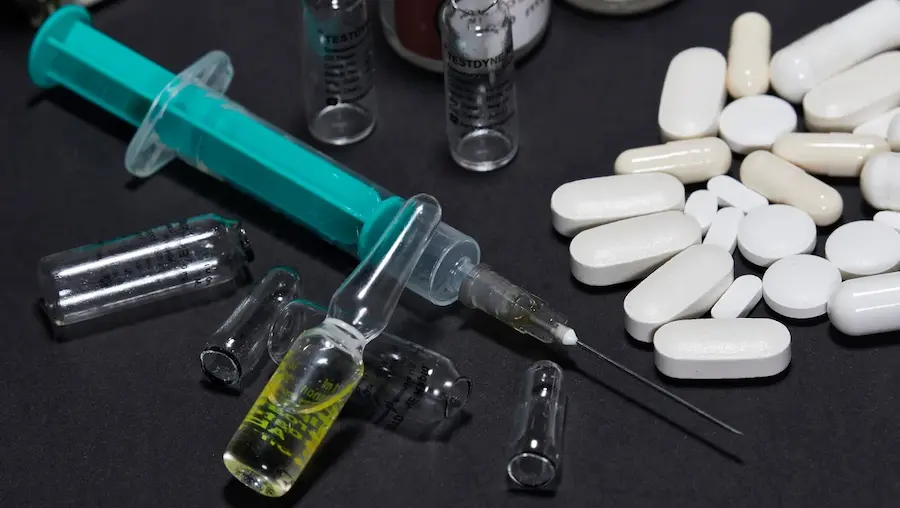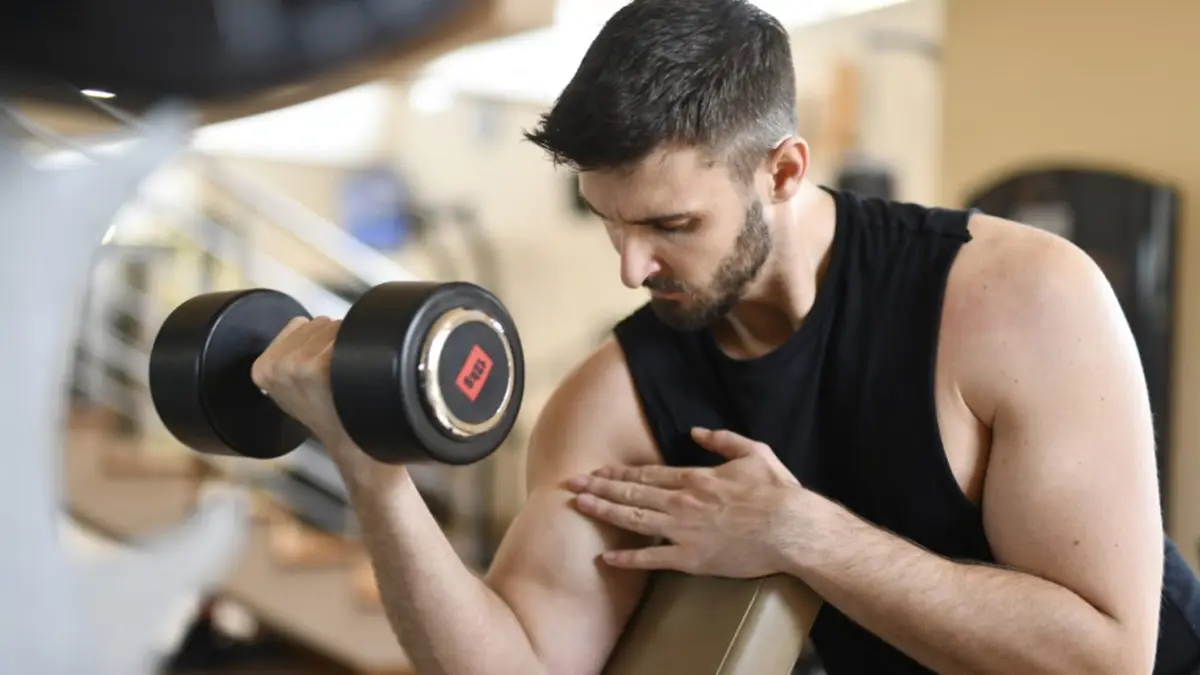In the world of sports medicine, the discussion around steroids often centers on their role in enhancing performance and, consequently, on the ethics and legality of their use. However, another significant aspect of steroids often overlooked is their potential in aiding recovery from injury. Steroids are known for their anti-inflammatory properties and ability to promote muscle growth, which can be beneficial in treating various sports-related injuries.
The application of steroids in clinical rehabilitation and recovery provides an additional tool for physicians. They employ these substances to manage pain and accelerate healing processes, allowing athletes to return to their sports activities more quickly. However, the use of steroids for recovery raises questions about the fairness of such therapies in sports and their long-term health implications for athletes.
Quick Summary
- Steroids’ capacity for healing and pain management is leveraged in sports medicine.
- Their use in rehabilitation presents questions regarding the long-term health of athletes.
- Legal and ethical considerations must be balanced with recovery benefits in treatment plans.
An Overview of Steroids in Sports Medicine

Anabolic-androgenic steroids (AAS) have been a controversial subject in sports medicine. Their primary medical use is to treat certain hormonal issues in men and muscle-wasting conditions caused by disease. But in the realm of sports, anabolic steroids are often misused for performance enhancement.
Athletes use these compounds to increase muscle mass and improve strength. The types of steroids abused in sports are synthetic variations of testosterone, an essential male hormone. Despite the potential gains, steroid use carries significant side effects. These include liver damage, hormonal imbalances, heart problems, and behavioral changes.
According to the World Anti-Doping Agency (WADA), steroids are among the most common performance-enhancing drugs that are banned in competitive sports. Doping refers to the use of banned substances by athletes to unfairly gain an advantage. Detection of illegal steroid use is a key concern for sports medicine professionals.
Sports medicine also deals with the therapeutic use of steroids under medical supervision. When used legally and ethically, steroids can assist in recovery and rehabilitation from injury, underlining the dichotomy of steroid use in a sports context.
The approach to managing and preventing illegal steroid use involves education, strict regulation, and enforcement of anti-doping policies. Sports medicine plays a crucial role in promoting fair play and the health of athletes, steering them away from the risks of unsupervised steroid use.
Physiological Effects of Steroids on Athletes

Steroids significantly alter an athlete’s physiology, enhancing muscle mass and strength but also bringing a range of systemic consequences and side effects.
Impact on Muscle Mass and Strength
Anabolic-androgenic steroids (AAS) are synthetic derivatives of testosterone known to promote muscle hypertrophy and increase lean body mass. Athletes often use AAS to boost muscle mass, strength, and power, seeing substantial gains particularly when coupled with resistance training. Structurally, steroids aid in protein synthesis and decrease muscle breakdown, facilitating greater muscle build-up.
- Muscle Size: Enhanced through increased protein synthesis.
- Strength: Augmented due to larger muscle fibers.
Systemic Consequences and Side Effects
The systemic use of AAS can cause a variety of adverse effects:
- Cardiovascular Effects: AAS use is linked to increased risk of heart disease and stroke due to lipid profile changes and hypertension.
- Hormonal Imbalance: Steroid use can lead to lowered natural testosterone levels and infertility.
| Side Effect | Description |
|---|---|
| Psychological | Dependence, aggression, and depression can follow from prolonged AAS usage. |
| Musculoskeletal | Muscle dysmorphia is a disorder characterized by a distorted body image. |
| Reproductive | Long-term steroid use can cause infertility in both men and women. |
Systemic side effects are multifaceted and can impact athletes significantly, affecting their health and careers. These side effects range from reversible conditions to severe irreversible damage, both physically and psychologically.
References
Steroids in Clinical Rehabilitation and Recovery

Steroid therapy has become a significant component in the clinical rehabilitation and recovery process, fostering musculoskeletal repair and addressing conditions that extend beyond athletic injuries.
Musculoskeletal Repair and Recovery
In the realm of clinical rehabilitation, anabolic steroids are recognized for their role in enhancing musculoskeletal repair. Predominantly, these steroids are used to promote muscle recovery and increase body mass, crucial in patients experiencing muscle loss due to various medical conditions. Therapeutic use of anabolic steroids facilitates the repair of skeletal muscles after injury and can be integral in the recovery process for sports-related injuries, including those requiring anterior cruciate ligament reconstruction and rotator cuff repair.
In postoperative recovery, particularly after procedures like hip fractures, nandrolone decanoate, a specific anabolic steroid, has been employed to support muscle and bone recovery. Anabolic steroids also play a part in combating muscle loss associated with conditions like cancer and osteoarthritis.
The therapeutic application of corticosteroids is notable in the management of osteoarthritis and postmenopausal osteoporosis, conditions leading to significant reductions in bone density and increased fracture risks.
| Anabolic Steroids in Rehabilitation | Application | Benefits |
|---|---|---|
| Nandrolone Decanoate | Postoperative Recovery | Increases Muscle Mass, Improves Bone Density |
| Corticosteroids | Osteoarthritis, Osteoporosis | Reduces Inflammation, Manages Pain |
Therapeutic Applications Beyond Sports
While steroids are often associated with sports medicine, their use extends into broader therapeutic contexts. Corticosteroids, for instance, are extensively used in managing chronic conditions, optimizing rehabilitation outcomes by reducing inflammation and pain.
In the treatment of cancer, corticosteroids can prevent nausea during chemotherapy and stimulate appetite, assisting in the overall recovery process. Additionally, they are implemented in the rehabilitation of patients with muscle loss due to long-term illness or extended periods of immobilization.
Anabolic steroids have also shown efficacy in treating osteoporosis, particularly in postmenopausal individuals, by improving bone mass and reducing the incidence of fractures.
| Corticosteroids in Clinical Therapy | Condition | Effect |
|---|---|---|
| Cancer Therapy | Muscle Loss, Nausea | Stimulates Appetite, Reduces Vomiting |
| Osteoporosis | Bone Density | Enhances Bone Mass, Reduces Fracture Risk |
References
Legal and Ethical Considerations in Sports Medicine

Doping remains a controversial issue in sports. The World Anti-Doping Agency (WADA) establishes rules against the illicit use of performance-enhancing drugs. Their mission includes protecting athlete’s health and preserving the integrity of competition.
Illicit use of steroids by competitive athletes is both a legal and ethical violation. It undermines fair play and poses significant health risks. Athletes caught doping may face bans, fines, and tarnished reputations.
Substance use disorders can sometimes stem from athletes attempting self-medication for recovery or performance. This underscores the need for effective education and support systems within the sports community.
The management of transgender athletes in sports is an evolving issue with both legal and ethical dimensions. Governing bodies are constructing policies to ensure inclusivity while balancing competitive fairness. The development of a consensus statement by sports organizations can provide guidelines for the inclusion of transgender athletes.
In conclusion, the landscape of legal and ethical considerations in sports medicine is complex. Professionals must navigate these with due diligence to maintain the integrity and spirit of sports.
Future Directions in Steroid Research and Sports Medicine

Research on steroids in sports medicine is orienting towards a more comprehensive understanding of the nuances in athletic performance and recovery. Systematic reviews and meta-analyses are critical, aiming for high-quality evidence synthesis while using databases like MEDLINE.
Endurance and muscular strength represent two performance dimensions significantly affected by steroid use, and future studies will likely investigate their correlation further. Diet, another key factor, is expected to play a part in the research to discern its interaction with steroids.
The use of anabolic-androgenic steroids (AAS) in competitive athletes will remain a focal point. Researchers will examine the consequences of AAS use, not just on performance but on health in varying clinical scenarios. Subsequent investigations cater to understanding how AAS influence lean mass versus fat mass amongst exercising adults.
With an emphasis on endocrinology, upcoming studies may explore the interrelations between steroid use and hormonal balances. This angle could unveil pivotal insights regarding optimal recovery strategies and the manipulation of body fat levels.
In the supplement domain, analyses of over-the-counter products that athletes commonly use to support recovery will continue. Cutting-edge research will unravel the supplement’s impact on athletic performance and overall health.
As the field progresses, emerging trends in sports medicine research will integrate findings on steroid use within broader wellness frameworks addressing competitive athletes and exercising adults alike.
Frequently Asked Questions

In the realm of sports medicine, understanding steroid use for recovery is critical. This section answers common queries about how steroids impact recovery times and outcomes for athletes.
What are the implications of steroid use on muscle recovery times?
Anabolic steroids can reduce muscle damage and increase protein synthesis, potentially shortening recovery time after intense exercise. They may also modulate inflammatory responses, leading to swifter muscle repair.
Which steroids are known to be most effective for tendon and ligament repair?
Nandrolone and growth hormone have been cited for their role in collagen synthesis and tendon healing. However, their efficacy and safety remain under scientific review.
Are there any specific steroids recommended for accelerating injury recovery?
No particular steroid is universally recommended for injury recovery due to potential side effects and the legal and ethical implications of steroid use in sports.
How do steroids facilitate the healing process in sports-related injuries?
Steroids can promote healing by reducing inflammation, edema, and cellular damage. They can also enhance the body’s ability to repair tissues by influencing protein synthesis and other anabolic processes.
Is there a role for anabolic steroids in affecting the healing of sports injuries?
The anabolic effects of steroids may positively impact the healing of sports injuries by stimulating the building of proteins and preventing muscle atrophy, yet their use in this context is not without controversy and health concerns.
Can the use of steroids improve ACL recovery outcomes?
While some studies have shown that steroids could potentially improve outcomes in ACL recovery by strengthening the ligaments and aiding in the repair process, the risks and legality issues often sideline their use in clinical practice.
References
https://www.ncbi.nlm.nih.gov/pmc/articles/PMC4837307/
Dr. Grant Fourie, a specialist in male hormones, is based in Cape Town, South Africa. He provides comprehensive treatments for conditions related to low testosterone, such as erectile dysfunction, fatigue, and mood changes. His methods include hormone replacement therapy and other modern treatment options.
Contact me via email or phone to book personal appointment in my clinic: The Village Square, Cape Town - South Africa



